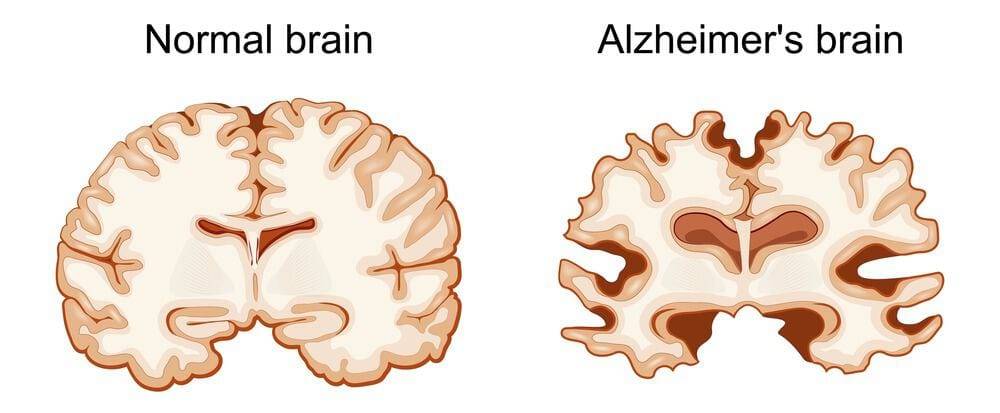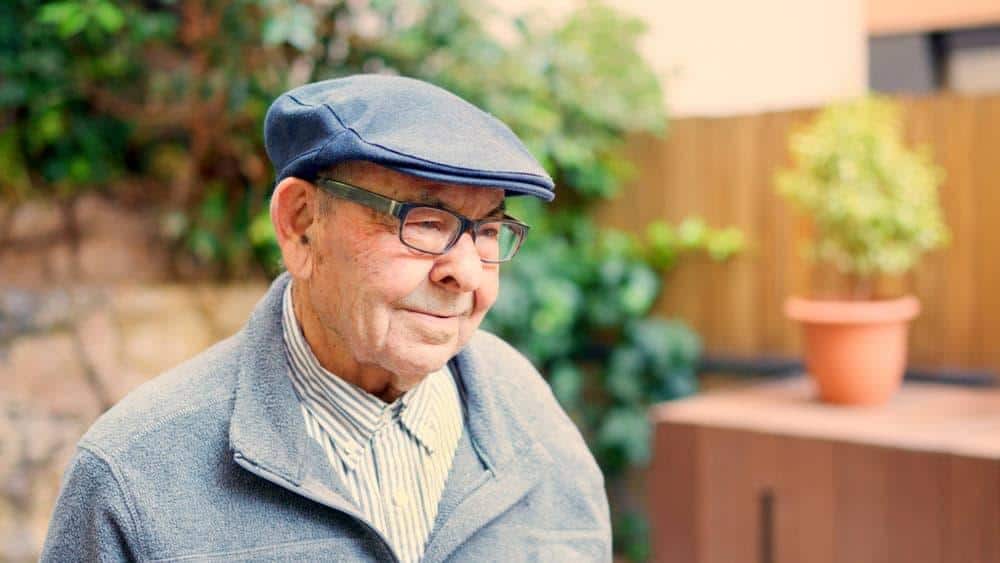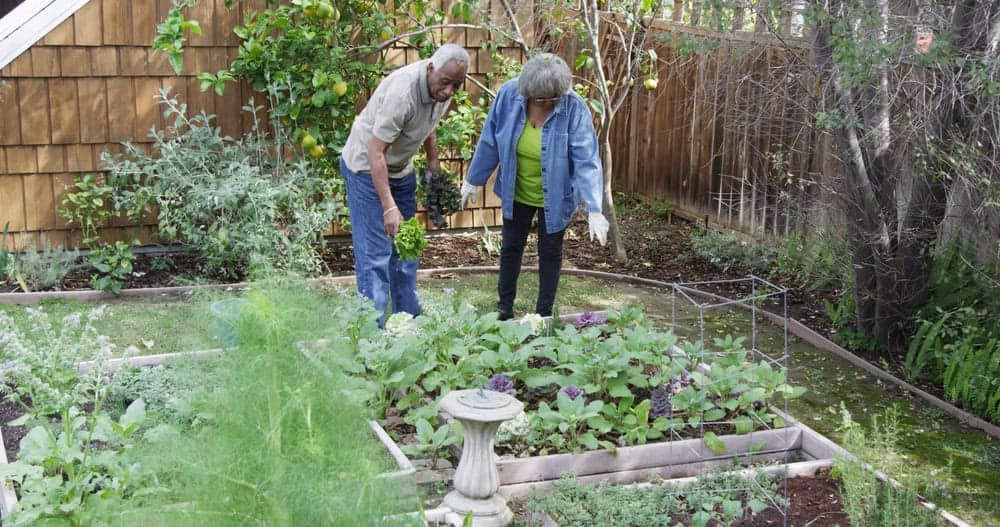Do you ever wonder how you can help your loved one who is showing signs of memory loss? Understandably, they want to help to make their lives easier. This help, however, doesn’t have to infringe on their decision-making and freedom. But how is this even possible When you watch them decide on something, and then forget it soon?
If you can, you would wrap them in a bubble, ensuring nothing terrible happens to their wellbeing. The fear of people taking advantage of their forgetfulness will be your constant concern.
During the first stages of Alzheimer’s, it can be difficult to monitor everything your loved one does and care for them properly. In this article, we will highlight some tips to help you understand and give you actionable ways to help you and your loved one.

Understanding The Importance Of Alzheimer’s Care
Although caring for your aging loved one with Alzheimer’s can be a noble endeavor, it comes with its challenges. According to research on Alzheimer’s disease, one in every three senior Americans with Alzheimer’s or any other form of dementia dies.
Alzheimer’s kills more of the senior population in America than prostate or breast cancer does.
This research shows that there is a crucial need for Alzheimer’s care. It’s essential to understand what this care entails so you can help your loved one lead a longer and healthier life.

You realize that your loved one’s behavior will change once Alzheimer’s, which is a form of dementia, kicks in. They may be aggressive and agitated. At other times, they may wander and might even get lost. They will also experience bouts of sleeplessness and confusion. Due to all these, you need to be better equipped to assist your loved one during this challenging time in their lives.
The fact that Alzheimer’s is a progressive health condition makes it imperative that you understand it and know how to help your loved one.
How Does Alzheimer’s Disease Affect Your Loved One’s Brains?

Scientists are continuing to unravel the complex changes that take place in the brain of an individual with Alzheimer’s. Changes in the brain of an Alzheimer’s patient take place a decade before they start exhibiting the signs and symptoms.
During the early stages of Alzheimer’s, toxic changes occur in your loved one’s brain. Proteins build up abnormally, leading to the formation of tau tangles and amyloid plaques. This build-up means that previously functioning neurons stop functioning, losing connections with other neurons and eventually dying.
Apart from these changes, other complex changes take place in the brain, playing a crucial role in the development of Alzheimer’s as well.
The damage to the neurons starts at the entorhinal cortex and hippocampus, which play a crucial role in memory formation. As more neurons continue dying, the affected part of the brain starts shrinking, and by the final stages of Alzheimer’s, this brain tissue is usually affected and shrinks significantly.
Alzheimer’s Disease signs and symptoms to look out for in a loved one include:
- Memory problems
- Movement difficulties
- Problems with sense of smell
- A decline in cognitive abilities
- Impaired judgments and reasoning
Stages of Alzheimer’s Disease
Alzheimer’s disease progresses from one stage to another. Stages include:
Stage One
This is, in most cases, a preclinical stage. There are usually no symptoms at this stage, although an imaging scan can show brain changes occurring. Alzheimer’s experiences differ among individuals. What should matter when caring for your loved one is their comfort, not the stage of progression.
Stage Two
This stage is usually known as the mild stage. Here, your loved one will experience cognitive difficulties and memory loss. This is the stage in which an Alzheimer’s disease diagnosis is usually made.
During this stage, you will note subtle changes in your loved one’s ability to remember things and think. It’s like a “brain fog” surrounds your loved one; they might find it hard to recollect and remember some recent events.
Some of the issues could be more serious in affecting your loved one’s daily schedule. Some of the problems you will notice are that:
- Wandering
- Get lost
- Difficulties when paying bills and handling money
- Ask the same questions repeatedly
- Inability to complete activities of daily living that have several steps
- Forget appointments
- Personality change
- Behavioral changes
- Having a hard time recalling people, time, and places
- Depression
- Misplacing items
- Becoming easily irritable and angry
- Experiencing difficulties when searching for words to describe something.

Stage Three
This is usually the moderate stage. During this stage, the damage in the part of the brain that controls reasoning, language, sensory processing, and conscious thought is greatly affected. You will note the following signs and symptoms:
- Increased confusion
- Difficulties in recognizing people
- Hallucinations
- Paranoia
- May fail to learn new skills and things
- Delusions
- Impulsive behaviours
Stage Four
During this stage, your loved one will be increasingly forgetful and need clarification. You will become more hands-on with their care as they will need help carrying out activities of daily living like eating and dressing.
One thing to note is that this is the longest stage of Alzheimer’s and can last up to four years.
Some of the signs that accompany this stage include:
- Your loved one may wander off looking for familiar surroundings
- Losing track of their surroundings
- Forgetting personal details like their home address
- Having memory gaps and having to fill these gaps with made-up stories
- Mistaking strangers for family
- Forgetting their family and friends
- Occasional loss of bowel and bladder control
- Becoming suspicious of some family members
- Becoming increasingly agitated and restless
- hallucinations
- Experiencing sundowners syndrome.
Stage five
This is the severe stage in the progression of Alzheimer’s, and your loved one’s cognitive ability will continue declining. Some of the signs you will note during this stage include:
- Your loved one will experience difficulty while communicating.
- Your loved one will be unable to recognize family and friends.
- Your loved one might think they are in an earlier stage of life. For example, they might be in their 70s, but during this stage, they might think they are in their early 20s.
- Need help carrying out activities of daily living.
- Are at high risk of falling
- May experience difficulty while swallowing
- Incontinence
- Will spend most of their time on the chair or in bed
- Experience hallucinations and delusions
- Be aggressive, especially to their caregivers
- Are at high risk of dying from pneumonia. When your loved one loses their ability to swallow, food and drinks might enter their lungs, resulting in infections.
How To Help your loved one Cope in these stages
There are some ways you can help your loved one during this stage to manage the symptoms of Alzheimer’s. They include and not limited to the following:
- Create a daily routine and help your loved one follow it
- Help your loved one learn a new skill
- Seek medical attention if your loved one has medical conditions such as high blood pressure, depression, or diabetes
- Ensure your loved one gets enough sleep
- Ensure your loved one spends time with family and friends

What Signs Should You Look Out For To Know Your Loved One Needs Alzhemer’s Care?
You can care for your loved one at home, which is ideal as it will help lessen the confusion accompanying a move. However, you may have to seek assistance from a memory care facility if you realize your loved one’s safety is at risk. This may be due to your loved one wandering or getting lost.
Using appliances at home poses a significant risk to them, especially if they turn them on and forget to turn them off. Some of the signs that will indicate it is time to seek assistance from a memory care home include:
- When you realize your loved one struggles to carry out activities of daily living
- Changes in their personality
- Behavioral changes
- Change in their routine
- When you are unable to care for your loved one
- Mood changes
- Hoarding and hiding things
- Confusion
- When you and other family members stop feeling safe with your loved one
- Poor health habits
- When your loved one’s doctor recommends it due to the change in their behavior.

How To Easily Care for Your Loved One with Alzheimer’s Disease
Caring for someone with Alzheimer’s is rewarding but challenging at the same time. The following tips will help you and your loved ones understand and cope with Alzheimer’s.
Learn more about Alzheimer’s and what to expect
When it comes to Alzheimer’s disease, you need to understand that it is a progressive disease, and its symptoms worsen as time goes by. As a caregiver or family member, you will face new challenges constantly.
Alzheimer’s is a progressive disease, which means symptoms worsen over time. As a caregiver, you may feel like you constantly face new challenges. Understanding what to expect will help you immensely, as you will not be blindsided by the severity of the symptoms over time.
Plan daily activities
You need to plan your loved one’s daily activities to help them pass the time and provide stimulation. Plan activities that you both enjoy, as it will help create memorable memories to carry with you when your loved one finally loses their memory. These activities can include:
- Walking
- Stretching
- Listening to their favorite songs
- Dancing
- Gardening
- Playing simple games
- Watching a movie
- Visiting museums
- Visiting parks
- Visiting family and friends.

Creating a daily routine
When you create a daily routine, you help your loved one feel a sense of familiarity. This familiarity can help lessen the confusion and agitation of a person with Alzheimer’s.
As much as you want to avoid introducing new things or people, sometimes it’s inevitable. For instance, you can’t help when you have to bring in a new caregiver or when you have to move your loved one into a Memory Care facility. Although this might set you back, creating and implementing a daily routine will gradually help.
Promote communication with your loved one
A person with Alzheimer’s usually struggles with communication, and this can make them withdraw from themselves. The following are tips that could indicate your loved one is struggling with communication:
- Having difficulty remembering some words
- Feeling sad once they realize they can’t recall the words
- Losing their train of thought
When you recognize this struggle in communication, you can help by:
- Holding their hands if you know they don’t mind you doing so
- Addressing them by their given name
- Speaking calmly
- Speaking to them using relaxed body language
- Asking one question and wait for an answer before asking a different one
- Being patient with them
- Maintaining eye contact
- Asking yes/no questions.

Inform others about your loved one’s condition
If you are a caregiver, you could carry a business card informing others interacting with the person with Alzheimer’s about their condition. Pass on these cards carefully to avoid awkwardness.
You can also have your loved one wear a custom bracelet containing their contact information.
Provide nutritious meals
Your loved one must have a healthy and balanced diet. Since Alzheimer’s can affect eating habits, creating friendly and nutritious meals is essential.

Ensure your loved one’s Safety
As Alzheimer’s disease progresses, you must ensure the environment is friendly and that your loved one is away from anything that can be a safety hazard.
Sometimes, your loved one’s brain changes may expose them to danger. You can use these tips to help ensure your loved ones are safe:
- Padding or removing any sharp edges in the furniture
- Ensuring they wear comfortable shoes
- Limit mirrors in the house; your loved one may fail to recognize their mirror image and get scared that there is a stranger with them
- Install safety locks
- Put stickers on the taps indicating whether it is hot or cold.
Assist With Administrative Tasks
With Alzheimer’s, there will come a time when your loved one will find it difficult to make necessary decisions. It’s essential to make necessary administrative decisions before they reach this stage. You can discuss it and decide who will have the power of attorney to look after your loved one’s interests.

Take Away
As a caregiver or family member, caring for a loved one with Alzheimer’s can be challenging. You will experience positive and negative emotions while being there for your loved one. It is vital to know when you need a break to recharge so that you can assist your loved one with the help they need. Seeking respite care is not running away from your responsibilities or giving up.
It is essential to seek assistance from people who know what you are going through to help you and your loved one with Alzheimer’s care. If you realize the home is no longer safe for you and your loved one, you can research memory care facilities where your loved one will be well cared for.
If you’re looking for such facilities in Carson City, Reno, and the surrounding areas, don’t hesitate to call us; our caregivers are ready to help you and your loved one.




